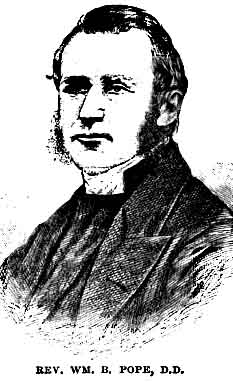
Here are the top eight lessons I think a young theologian can learn from Pope’s life and career.
1. Be involved in pastoral ministry. Pope was in full-time ministry for years before he became a theologian. If that isn’t your vocation, do everything you can to be connected with the actual life of a congregation at multiple levels. Don’t just play theologian, but put yourself on the front line. A Lutheran theologian I studied with once said, “It’s not enough to be a church-based theologian. You have to be a church-basement theologian.” You have to understand what doctrine is for. It’s not for theologians, it’s for churches.
2. Find a mentor and put yourself at his service. Pope studied under John Hannah, whose theology was not exactly a model for what Pope would eventually produce. But a real mentor, even with flaws and limitations, is preferable to an imaginary mentor. Pope put long editorial hours into revising Hannah’s lectures for publication, and no doubt learned a lot from the process.
3. Translate hard German theological commentaries on Scripture. Or, more generally, find a way to get sustained, high-level interaction with the Bible. Pope’s mature theology is constantly showing signs of how hard he has thought about Scripture, how much he has internalized its ways of speaking and arguing, and how many details have come together for him on the way to a comprehensive vision.
4. Decide how Scripture itself organizes Christian theology. Pope was convinced that First John, properly understood, was the summit of biblical revelation, and that all roads would lead up to it from the rest of Scripture. Of course, Pope was wrong: that book is Ephesians. But the point is, Pope didn’t have to make up a system and impose it on Scripture. He stared at Scripture until he believed he could discern how it was already implicitly systematized. First John was not a canon-within-the-canon for him, but it was the highest point, and helped him keep his bearings.
5. Devote time to major doctrines. Pope published studies on Christology especially. He didn’t just sit down and write a systematic theology; he worked out major blocks of it independently. When it was time to assemble a testimony to the full counsel of God, he had big parts of it in place already.
6. Make helpful study tools available to students and yourself. Pope’s translation of Winer’s Confessions of Christendom was an important move. As he mapped out where Methodism belonged in the territory (“Arminian in opposing Calvinism, but in no other way”), he came to know the internal logic of all the confessions. He also had to admit frankly that his own tradition had not taken itself seriously enough yet to confess its faith in an articulate way that demanded recognition. You can almost hear him saying, “Note to self: write a real confessional Methodist theology so the next edition of Winer will have to recognize it.”
7. Love your own tradition as well as the great tradition of Christian thought. Pope loved the Methodist churches deeply, and cherished his Wesleyan heritage with the kind of love that opened him up to learn from the great tradition and all the other branches of Christian theology. He had the perfect balance between the universal (The Church) and the particular (his church).
8. Learn and teach theology like your life depends on it. Pope was not messing around, and this was not a dress rehearsal for a theology show to be staged at some indefinite later date. He and his students were doing theology as if they were making decisions about God, in the presence of God, in real time. Someone has warned of the danger that theologians are exposed to from constantly handling just the outsides of holy things. William Burt Pope warned his fellow teachers never to forget the dreadful possibility “that we may be theologians, but not Christians; ecclesiastics, but not children of God; clever, but not good; controversial, but not prayerful.”